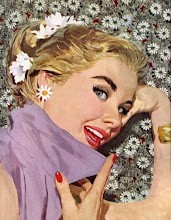As I've gotten back to my routine television viewing over winter break, I've realized that there are two things I'm not afraid to admit about myself. The first is my suspense over the end of Wizards of Waverly Place (I'm 18, give me a break) and the second is my longtime love of soap operas.
Yes, soap operas.
At this point, you’re probably either a) gagging with horror or b) laughing hysterically. The thing is, soap operas aren’t as silly or awful as most people think. While no one is arguing that a Daytime Emmy carries the same weight as an Oscar, soap operas still have entertainment value in an age of Jersey Shore and Gossip Girl. In fact, you might be surprised by how much Snooki and Blair Waldorf have in common with your average soap opera heroines and villainesses.
And sure, while nobody calls sex “lovemaking” anymore and an “evil twin” has become standard skit-show parody fare, soaps still have their purpose.
In fact, I thinkmanye conventions that developed in the soap world have influenced a lot of YA work and certainly countless romance titles. I've been watching them since my childhood and I think, at least subconsciously, they've had an impact on my creative process.
I have yet to determine if this is good or bad, but maybe if none of my other internship prospects work out this summer, I'll try writing for a soap mag.
And if you're still not convinced that soaps are relevant to broader culture, here's my case:
1) Stars Get Their Start on Soaps
From Oscar nominee Julianne Moore to rom-com sweetheart Meg Ryan, many stars have launched successful careers from humble soap opera beginnings. Soap operas can give burgeoning actors a place to hone their acting skills and pay the rent while they’re trying to build a reputation in the industry. But this doesn’t mean all soap actors are models who decided they want to speak, many soap actors come from theater and classically trained backgrounds.
2) Not All Storylines Involve Evil Twins
Soaps also tackle heavy storylines, such as teen pregnancy, rape, and in the recent case of General Hospital, Post Traumatic Stress Disorder. Where prime time shows may only be able to deal with one of these heavy storylines with care and detail, soaps have the screen time and character back story to really make a meaningful impression on the viewer.
3) Basis of Modern Teen Dramas
You may not realize it, but you’re probably watching a form of soap operas already. Shows like Grey’s Anatomy and Gossip Girl are often referred to as “primetime soap operas” because they use a lot of the same techniques that have been keeping soap operas dramatic and fresh for years. If it weren’t for these primetime soaps, we’d have nothing to watch but crime shows and bad reality competitions. In fact, you can still get your fix of Seth Cohen on the SoapNet, where they syndicate The O.C.
4) What Else Is On At 1-3 PM in the Afternoon?
If you’re laid out sick, do you really want to be watching the same Rachel Zoe rerun for the millionth time? Bravo and MTV programming may be addictive, but it’s also repetitive. With soaps, your chance of running into an episode you’ve seen before are slim to none. Soaps have plenty of storylines to latch onto and they’re normally not so Twin-Peaks-complicated that it’s hard to follow.
image courtesy of people.com
5) James Franco
Sure, he plays a serial killer named after himself, but we all knew James was a little off, didn’t we? If the last Oscars proved anything, it’s that James still looks pretty no matter what the quality of his work is. And surely if James Franco thinks soaps are credible entertainment, we should as well. He’s the one getting the PhD afterall…
What do you think? Do you watch any daytime soaps? Comment and let me know what you think!





0 comments:
Post a Comment